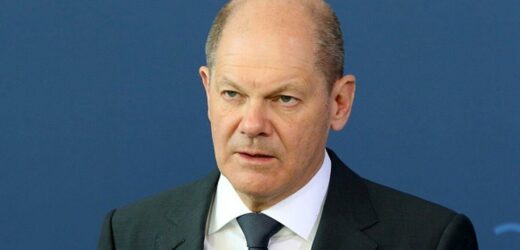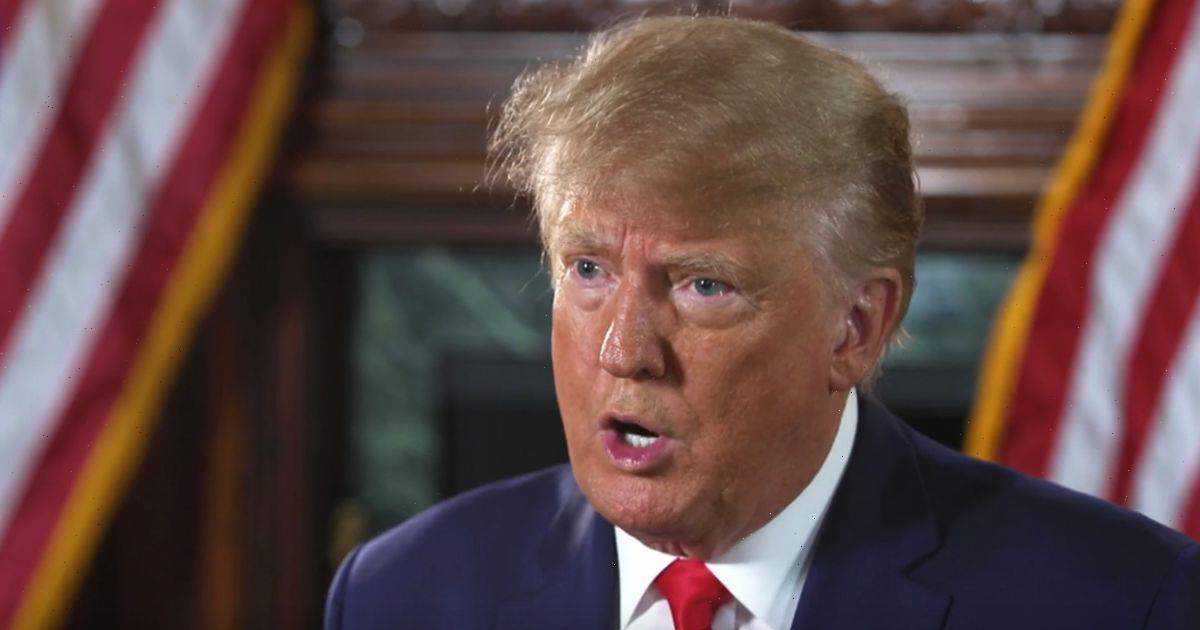Economist explains why Germany is still using Russian gas
We use your sign-up to provide content in ways you’ve consented to and to improve our understanding of you. This may include adverts from us and 3rd parties based on our understanding. You can unsubscribe at any time. More info
The German Government is in a panic after Putin warned “unfriendly countries” buying his gas must purchase the fuel in Russian rubles or else face having gas cut off. While the April 1 deadline has passed, the Kremlin said payments for deliveries due after that date would not be taken until as late as May. With May right around the corner, Germany looked to be in trouble, especially since a third of its gas comes from Russia.
As it scrambles to avert a huge supply cut Putin might orchestrate, an oil shock bill from 1975 could provide a saving grace.
Updating this old energy security act will push through several major changes in Germany.
Vice-Chancellor Robert Habeck explained: “Russia’s war of aggression on Ukraine, which violates international law, has led to a tense energy situation.
“Prices are high, uncertainty is great, risks are present. We must therefore prepare ourselves for the situation to come to a head.
“Therefore, with the amendment to the energy security act, we are once again significantly sharpening our instruments and bringing them up to date.


“This will enable us to strengthen crisis preparedness and act quickly and comprehensively. It is a matter of doing everything possible to maintain basic supplies.”
The update to the law will first of all create a digital platform to set up crisis measures quicker.
This will involve traders and industrial consumers in the gas sector registering themselves, and providing data on their gas consumption and purchases.
This will help the Gernan government rapidly shut down companies during a gas shortage, the Ministry for Economy and Climate Action has said.
Berlin is also set to introduce regulations to bolster what is known as the EU solidarity mechanism.

This is where EU states are obliged to come to another member country’s aid should it require assistance.
The ministry said in a statement: “The obligation under the security of supply Regulation to supply gas to EU Member States cannot be fulfilled without these measures
It added that the final step involves “extraordinary measures of crisis prevention”, which can be applied even before an emergency occurs to prevent a threat to energy supplies.
While Germany is striking up a plan of its own, it appears to be going against the EU’s desire to slap sanctions down on Russia.
Germany and Hungary have been the main dissenting voices against EU sanctions on Russian fossil fuels, arguing that the economic damage caused by an embargo would be too severe.
DON’T MISS
‘India Jones’ tracks down hundreds of pieces of lost looted treasure [REPORT]
Bulgaria and Greece break EU ranks with new nuclear plan [INSIGHT]
Macron’s grip on Britain’s energy exposed – France to gain billions [REVEAL]

While German Chancellor Olaf Scholz has said his country will be willing to agree to sanctions eventually, he has made clear his country will not be able to part ways with Russian energy overnight.
This is despite the fact the European Parliament voted overwhelmingly in favour of an immediate ban to all of Putin’s hydrocarbons.
A group of 50 MEPs signed a furious letter addressed to Mr Scholz urging him to take a harsher stance against Russia.
It comes as Berlin has been adamant to accept an oil ban that the EU is considering slapping down.

It read: “We find it hard to believe that the proud German nation, which strongly supports Ukraine and in huge majorities demands sanctions on Russia, is satisfied with such policy line of the German Government.”
It continued: “We understand that Germany may feel targeted by Putin’s threats to cut gas supply to your country if the EU oil embargo is introduced.
“However, Germany, and the EU, should not prove themselves vulnerable to Putin’s blackmail.
“Thus, we ask the German Government to take a stand on the right side of history; not to make an easy decision, but the right one.”
Source: Read Full Article


